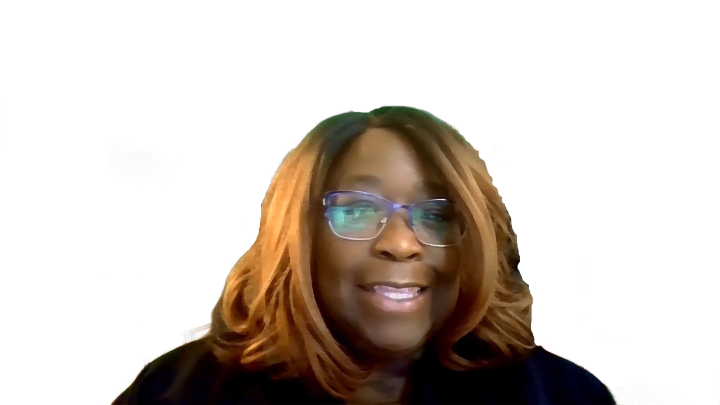Introduction to Sociology | Understand Society & Human Behavior
Credits: 0.50 total Duration: 1 semester 16 weeks, (15-weeks instruction) Delivery: Hybrid, (asynchronous and synchronous) Course: 451121
Credits: 0.50 total Duration: 1 semester 16 weeks, (15-weeks instruction) Delivery: Hybrid, (asynchronous and synchronous) Course: 451121
Introduction to Sociology: Understand Society & Human Behavior is a foundational course designed to introduce students to the systematic study of human society, social behavior, and social institutions. Using the comprehensive and accessible Introduction to Sociology 3e textbook, this course provides learners with critical tools to analyze and understand the complexities of social life, including the patterns and structures that shape individual experiences and group interactions. The course emphasizes the development of sociological imagination, the ability to see the relationship between personal experiences and larger social forces and encourages students to think critically about how societies function, change, and influence behavior.
Throughout the 15-week semester, students will explore core sociological concepts such as culture, socialization, social structures, group dynamics, deviance, social stratification, race and ethnicity, gender, family, religion, and more. The course integrates sociological theories and methods, highlighting the perspectives of classical thinkers such as Karl Marx, Emile Durkheim, Max Weber, and contemporary sociologists, to provide students with diverse lenses for understanding social phenomena.
Introduction to Sociology is an inquiry-driven course that introduces students to the scientific study of human society, group behavior, and the social forces that shape individual and collective experiences. This course empowers students to critically examine the world around them using sociological theories, research methods, and real-world applications. Through analysis of key social issues and institutions, students will develop the tools to better understand the complexities of identity, inequality, culture, and change within local, national, and global contexts.
The course encourages students to develop what sociologists call the “sociological imagination”, the ability to see the connection between personal experiences and broader social structures. This critical thinking skill enables students to evaluate how factors such as culture, socialization, institutions, and power dynamics influence behavior, opportunity, and perception. Throughout the course, students will explore topics such as norms and deviance, gender and race, family and religion, class and status, group behavior, and globalization.
Instructional practices are rooted in inquiry-based learning, challenging students to ask essential questions, evaluate diverse sources, and support their reasoning with credible evidence. Students will investigate how social scientists design and conduct research, compare qualitative and quantitative methods, and explore the ethical responsibilities of those studying human behavior. Assignments include reflective writing, multimedia projects, collaborative discussions, and real-world simulations that promote creativity, communication, and analytical thinking.
Students will gain an understanding of multiple sociological perspectives, including functionalism, conflict theory, and symbolic interactionism, and apply these lenses to interpret modern societal challenges. The course draws from the work of classical sociologists such as Karl Marx, Emile Durkheim, and Max Weber, as well as contemporary thinkers addressing the diverse social interactions in today’s society.
Sociology I also encourages civic literacy and responsible participation in a diverse democratic society. Students will explore how individuals and groups interact with social institutions and how those institutions reflect and reinforce systems of power and inequality. The course creates space for respectful dialogue and debate about current events and controversial issues, supporting the development of empathy, ethical reasoning, and a sense of social responsibility.
The course fosters global awareness and cultural understanding, helping students reflect on their own social identities while gaining appreciation for diverse cultures and perspectives. Through case studies and cross-cultural comparisons, students will examine how societal values, traditions, and social norms differ across regions and time periods. Special attention is given to the intersection of local experiences with global trends and transformations.
Course Objectives:
By the end of the semester, students will have gained a richer understanding of how societies function and how individuals can contribute to social change. Whether preparing for further study in the social sciences or seeking to become a more informed and engaged citizen, students will leave this course with strengthened skills in critical thinking, research, collaboration, and problem solving.
FAQ area empty
What Is Sociology? Understanding the Sociological Imagination Introduction
Day 1: Reading Assignment
Day 2: Chapter 01 - Introduction to Sociology 3e - OpenStax (Audiobook)
01:13:23Day 3: Sociological Imagination and Perspectives
Independent Practice – Personal Application
Day 4: Key Terms
Founders of Sociology
Day 5: Exit Ticket
Sociological Research Introduction
01:09:44Day 1: The Scientific Method in Sociology
Discussion
Group Brainstorm
Day 2: Types of Sociological Research
Group Activity
Day 3: Ethics in Sociological Research
Class Discussion
Day 4: Design a Sociological Study
Independent Work
Day 5: Review & Reflection
Lesson Agenda
Day 1: What Is Culture?
Lecture/Discussion
Writing Prompt
Day 2: Elements of Culture
Mini-Lecture / Discussion
Partner Activity
Day 3: Subcultures, Countercultures, and Cultural Change
Class Share-Out
Lecture: Subculture, counterculture, innovation, diffusion, cultural lag
00:09:40Media Analysis
Day 4: Ethnocentrism and Cultural Relativism
Differing Customs
Reading Assignment
Day 5: Review & Reflection:
Culture scavenger hunt
Chapter 3: Understanding Culture Quiz
Day 1: What Is Socialization?
Read & Analyze
Day 2: Theories of Self-Development
Reflection
Current events Project: Sociological Theories of Self-Development
Day 3: Agents of Socialization
Group Discussion
Agents of socialization mind map
Day 4: Socialization Through the Life Course
Read and Discuss
Activity
Day 5: Review
Exit Slip
Day 1: Introduction to Social Structure
Groups and Organizations
00:58:09Types of Groups
Discussion Activity
Day 2: Group Size & Structure: Statuses and Roles
Exit Challenge
Family Member Interview
Day 3: Institutions and Interaction - Formal Organizations
Key Terms
Day 4: The Social Construction of Reality
Chapter 6: Short Answers
Day 5: Intro to Sociology: Chapter 6 Questions
Chapter 6 - Groups and Organization
00:58:09Day 1: Technology Today
Discussion: Types of Media and Technology
Day 2: Read & Discuss: Media & Technology in Society
Exit Ticket: Media Impact and Inequality
Day 3: Global Implications of Media and Technology
Could you live without the internet? | The Digital Divide
00:08:11Day 4: Addressing media literacy or cyberbullying
Small Group Project
Day 5: Theoretical Perspectives on Media and Technology
Reflection Journal Prompt
Day 1: Introduction to Global Inequality
Global Stratification
00:58:46Chat Discussion
Day 2: Theories and Causes of Inequality
Comparison Group Activity
Partner - Exit Ticket
Day 3: Solutions and Action
United Nations Development Programme (UNDP)
Day 4: Reading Assignment
Class Debate
Day 5: Reflection Journal Prompt
Day 1: Understanding Race and Ethnicity
Reading Assignment: Chapter 11 (Sections 11.1–11.4)
Vocabulary Definition
Dominant group and subordinate group
Day 2: Prejudice, Discrimination, and Systems of Inequality
Group Work
Day 3: Race in the U.S. Context
Reflection Challenge
Day 4: Intergroup Relationships
Understanding Intergroup Relationships
Day 5: Promoting Inclusion
Race and Ethnicity in the United States
Day 1: Introduction to Aging and Gerontology
Aging and the Elderly
01:37:36Direct Instruction: Defining aging and the role of gerontology
Day 2: Theories of Aging
Lecture & Guided Notes
Day 3: Social and Economic Challenges
Reading Excerpt
Exit Ticket
Day 4: Ageism and Media Portrayal
Discussion on Aging
Group Project
Day 5: Building Empathy and Civic Awareness
Final Reflection
Day 1: Introduction to Families and Kinship
Compare and Contrast
Day 2: Marriage and Family Structures
Pair Work
Day 3: Sociological Perspectives on Family
Lesson and Discussion
Guided Notes
Group Debate
Day 4: Contemporary Family Issues
Class Discussion: Reactions and insights
Project Launch
Day 5: Reflection and Application
Day 1: Introduction to Religion and Its Social Role
Think-Pair-Share
Whole Group Discussion
Day 2: Major Sociological Perspectives on Religion
Lecture & Discussion
Day 3: Types of Religious Organizations and World Religions
Reflection: What do all religions have in common?
Day 4: Religion and Social Change
Exit Ticket 1
Day 5: Religion Today and Personal Connections
Written Discussion
Day 1: Introduction to Education as a Social Institution
Definitions and Types of Education
Small Group Activity
Day 2: Theoretical Perspectives on Education
Guided Notes: Theory comparison chart
Argumentive Essay - Exit Ticket
Day 3: Inequality in Education
Reflection Journal Entry
Day 4: Education Reform and Current Issues
Think-Pair-Share 14
Project Launch: Students propose reforms
Day 5: Application and Presentation
Final Discussion
Day 1: Introduction to Power and Authority
Instruction
Team Work
Day 2: Types of Authority and Political Systems
Group Activity Scenario
Day 3: Theoretical Perspectives on Power
Reading Assignment-17
Empowering Voices: Power Dynamics and Workplace Culture
00:14:23Day 4: Social Movements and Challenging Authority
Small Group Research Project
Day 5: Student-Led Discussion and Review
Final Reflection Podcast

interpersonal communication, marketing communication, applied research
0.0
 0 Student
0 Student
 26 Courses
26 Courses
 0 Review
0 Review
View Details

Academic Coaching & Instructional Support
0.0
 0 Student
0 Student
 2 Courses
2 Courses
 0 Review
0 Review
Empowering Educator & Instructional Leader
View Details Buy Now
Buy Now

Students
0
language
English
Duration
07h 28mLevel
beginner
Expiry period
4 Months
Certificate
YesThis website uses cookies to personalize content and analyse traffic in order to offer you a better experience. Cookie Policy


 English
English
 Certificate Course
Certificate Course
 0 Students
0 Students
 07h 28m
07h 28m